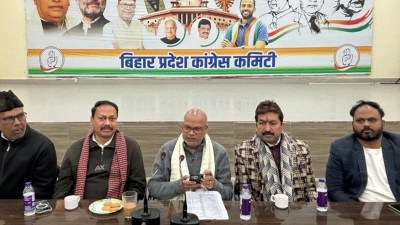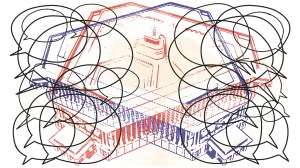Leadership breakdown in bailout failure
The collapse of the proposed rescue plan for the teetering financial system was the product of a larger failure...

The collapse of the proposed rescue plan for the teetering financial system was the product of a larger failure 8212; of political leadership in Washington 8212; at a moment when the world was looking to the United States to contain the cascading economic crisis.
From the White House to Congress to the presidential campaign trail, the principal players did not rally the votes they needed in the House. They appeared not to comprehend or address in a convincing way an intense strain of opposition to the deal among voters. They allowed partisan politics to flare at sensitive moments.
If there was any doubt that President Bush had been left politically impotent by his travails over the last few years and his lame-duck status, it was erased on Monday when, despite his personal pleas, more than two-thirds of the Republicans in the House abandoned the plan.
While there were lawmakers who opposed the package on merit, with Election Day just five weeks away, substantial numbers decided that to favour the bill would be to imperil their own political futures. And once the vote was under way and so few Republicans were voting aye, Democrats were disinclined to force more of their members to help pass what was clearly a deeply unpopular plan.
The leaders of both parties failed, many analysts agreed, in bringing the measure to the House floor without knowing whether it had the votes to pass 8212; a bad move at any time, but especially so in this case given the risk of the markets and the badly weakened financial system reacting badly.
Representative John A Boehner, the House Republican leader, became emotional as he urged his party to muster the will to approve the package. After his members overwhelmingly voted against it, he tried to shift the blame to a partisan speech delivered on the floor just before the vote by Representative Nancy Pelosi, the House speaker.
Pelosi delivered the Democratic votes she had promised, but could not muster enough of them to avert a defeat that will probably be remembered long.
The candidates to replace Bush, Senator John McCain and Senator Barack Obama, were far from Washington, bit actors at best in helping to resolve a crisis that one of them will inherit.
The breakdown, even if temporary, pointed up the difficulties of dealing with fast-moving emergencies through the slow-moving and inherently political legislative process. And despite rare bipartisan agreement among party leaders in this case, the gulf between what lawmakers were hearing in Washington and what they have been hearing from home proved too vast for many people, particularly Republicans, to jump.
- 01
- 02
- 03
- 04
- 05































